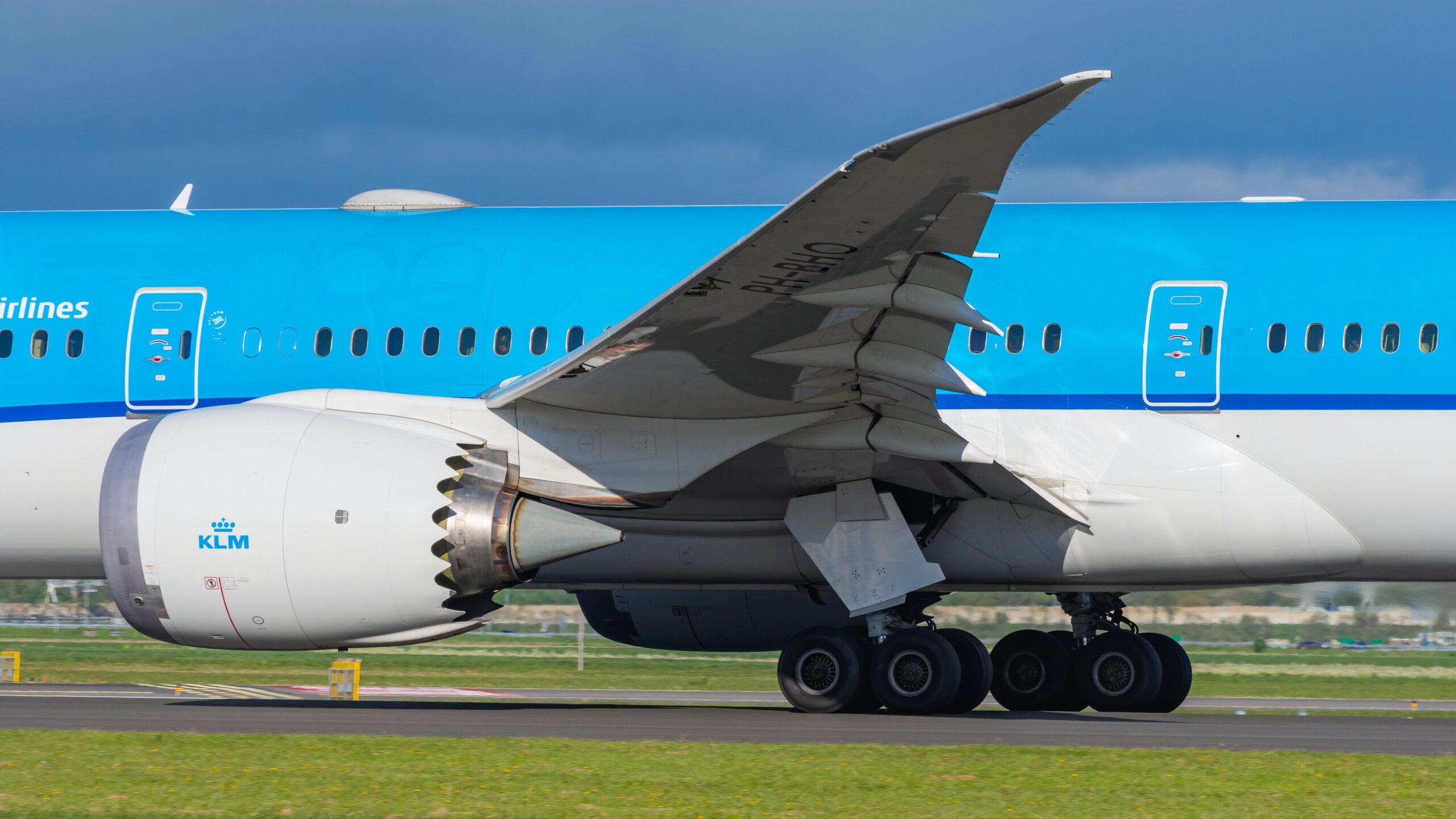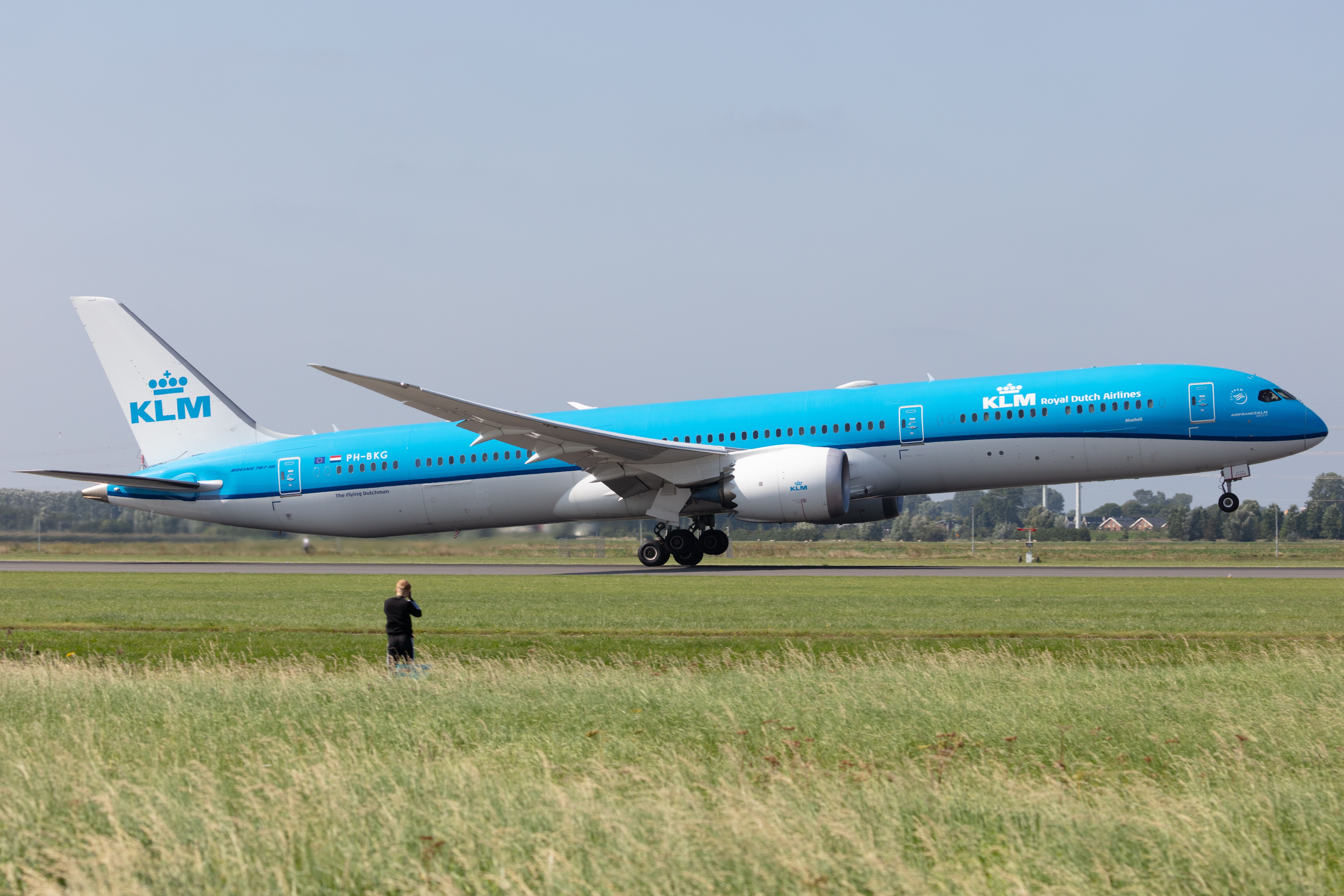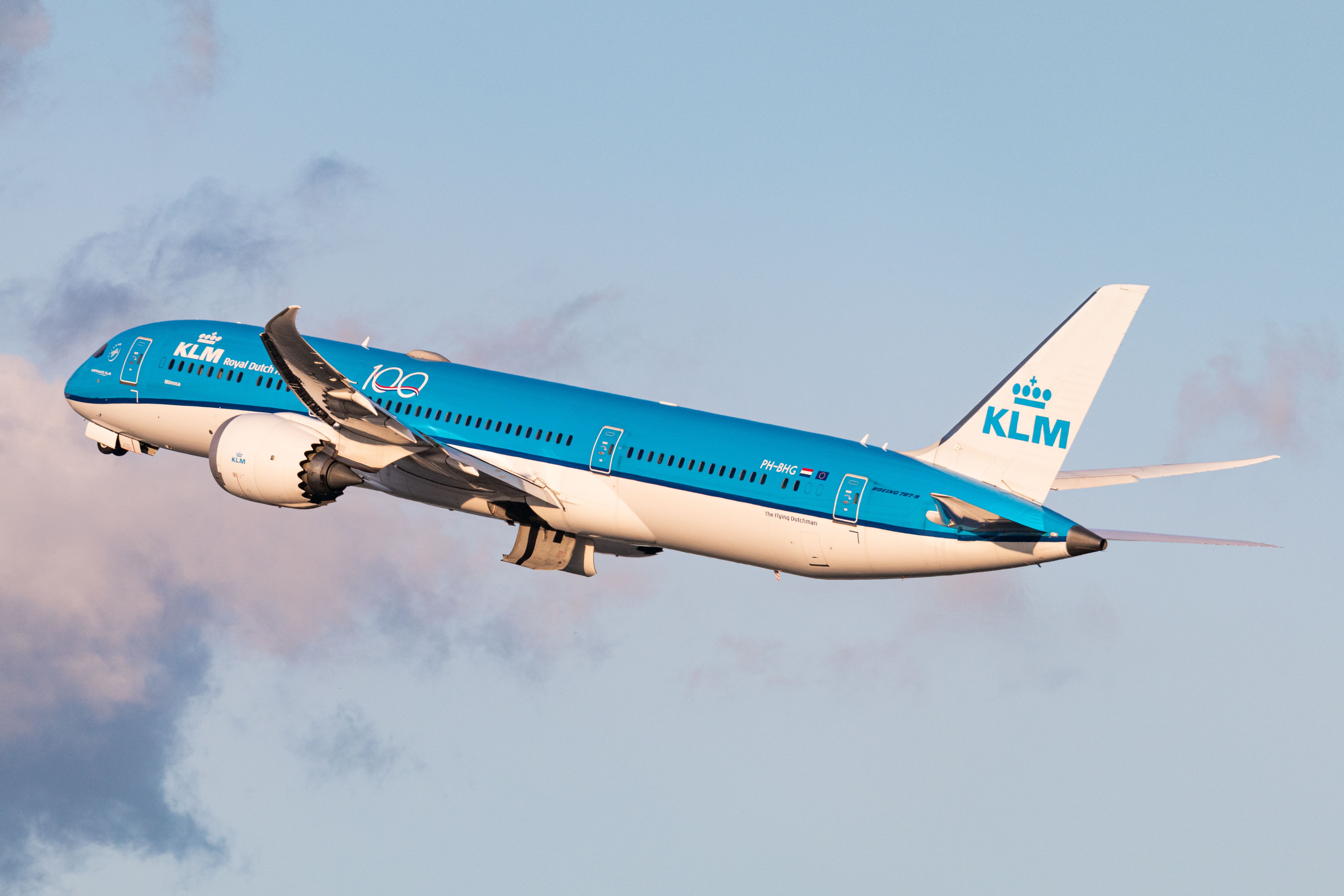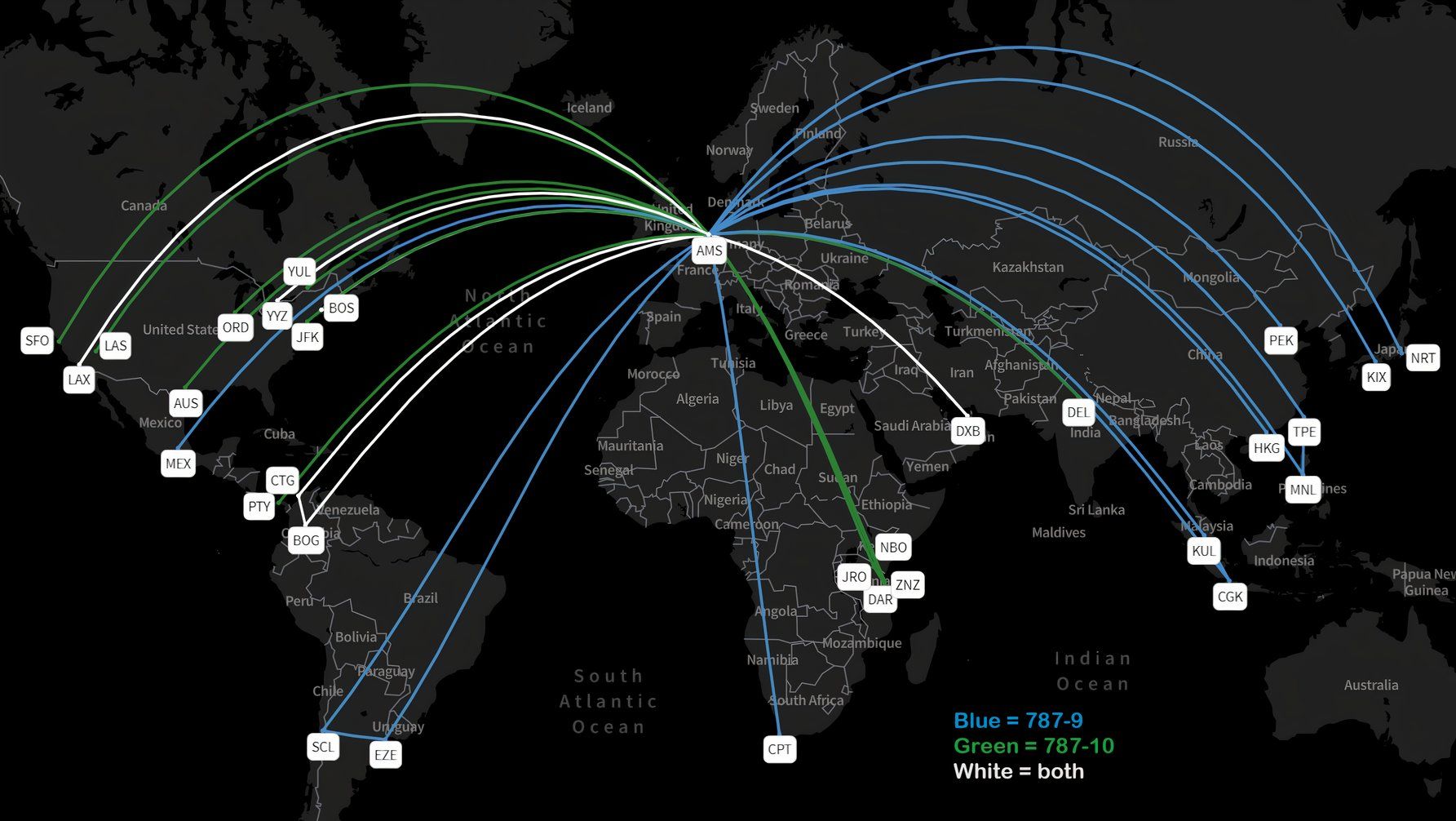Summary
- KLM has 13 Boeing 787-9s and 10 787-10s.
- While the 787-9 revolves around Asia, it’s North America for its larger sibling.
- Amsterdam-Beijing and Amsterdam-New York JFK are the top routes for each variant, respectively.
KLM Royal Dutch Airlines’ first Boeing 787 arrived in November 2015. Nearly nine years later, it has 23 of the type with two variants: the 787-9 and the shorter range but higher capacity 787-10. KLM had intended to have an all-Boeing widebody fleet comprising 777s and 787s. However, its first Airbus A350 will arrive in 2026, although it is unclear how many it will have compared to Air France. They will replace KLM’s aging A330s and 777-200ERs.
KLM’s 787s
While the SkyTeam member’s first 787-9 arrived in November 2015, its initial 787-10 wasn’t delivered until June 2019. In Europe, only Turkish Airlines, British Airways, Virgin Atlantic, and Air Europa have more -9s. In contrast, KLM is Europe’s number one operator of the -10. When both variants are combined, KLM is the third-largest European operator of the Boeing type.
Photo: Kevin Hackert | Shutterstock
The carrier’s subfleet is as follows:
- 787-9: 13 of them, each with 275 seats. There are 30 business seats, 21 in premium economy, 48 extra legroom economy seats, and 176 in standard economy
- 787-10: 10 of them, each with 318 seats. There are 38 business seats, 28 in premium economy, 39 extra legroom economy seats, and 213 in standard economy
KLM’s 787s: a network summary
Obviously, all the airline’s aircraft operate from Amsterdam. Examining OAG schedules data for July to September indicates which continents see each variant the most. As the following table shows, more than one in two 787-9 flights are to Asia, while North America is heavily dominant for the 787-10. Neither variant is deployed to the Caribbean in the peak summer.
|
Amsterdam to… |
787-9 flights |
787-10 flights |
|---|---|---|
|
Asia |
54% |
5% |
|
Africa |
2% |
17% |
|
Central America |
0% |
6% |
|
Middle East |
2% |
2% |
|
North America |
24% |
65% |
|
South America |
18% |
5% |
The 787-9’s extensive use to Asia and the Americas explains why its average stage length is about a quarter greater than the -10’s, at 4,858 nautical miles (8,998 km) against 3,912 nautical miles (7,245 km). When KLM’s entire widebody fleet is examined, the 787-9’s average stage length is the longest.
Photo: Vincenzo Pace | Simple Flying
Where they’ll fly
Between July and September, the 787-9 will fly from Amsterdam to Beijing Capital, Bogotá, Boston, Buenos Aires, Cape Town, Cartagena (served triangularly with Bogotá), Dubai, Hong Kong, Jakarta (via Kuala Lumpur), Kuala Lumpur, Los Angeles, Manila (via Taipei), Mexico City, Osaka Kansai, Santiago de Chile (via Buenos Aires), Taipei, Tokyo Narita, and Toronto. Amsterdam-Beijing has just about the most flights.
Image: OAG
The 787-10 will also fly to Austin, Bogotá, Boston (July 16 and 21 only), Cartagena (served triangularly with Bogotá), Chicago O’Hare, Dar es Salaam, Delhi, Dubai, Kilimanjaro (served triangularly with Dar), Las Vegas, Los Angeles, Montreal (August 16 only), Nairobi, New York JFK, Panama City, San Francisco, Toronto, and Zanzibar (served triangularly with Dar). Amsterdam-New York JFK is firmly number one.
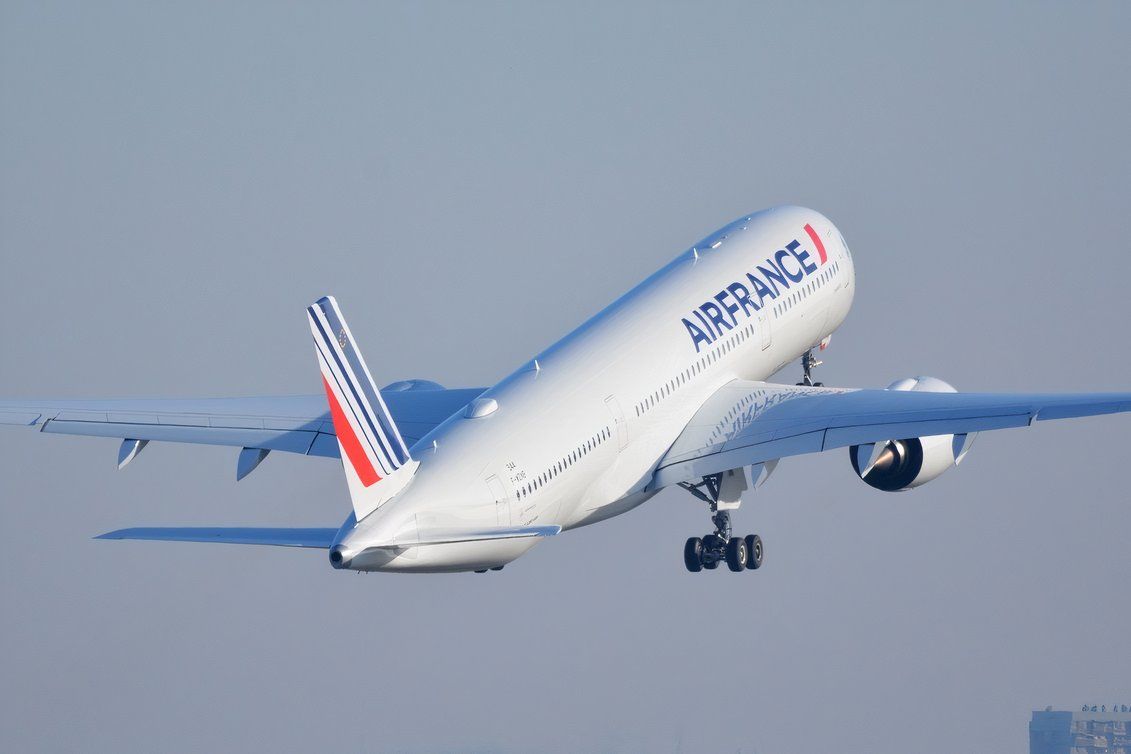
Related
Back After 28 Years: Does Air France’s Coming Long-Haul African Destination Make Sense?
This is what an airline network planner and Africa specialist thinks.

